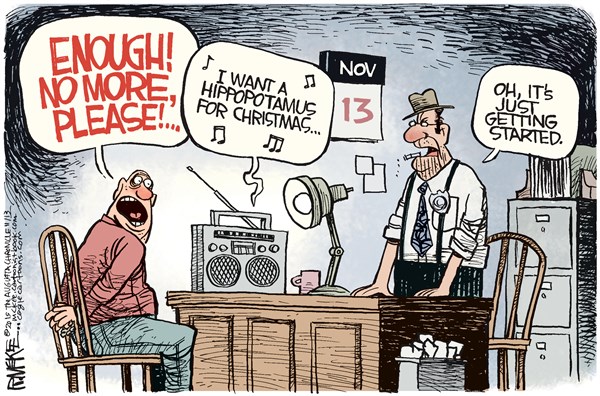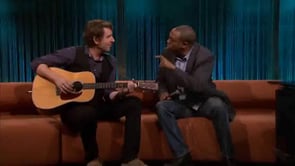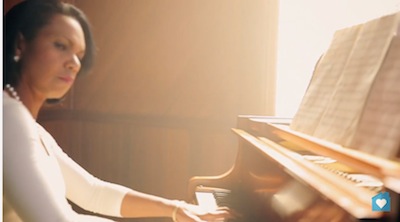13 Things You Never Knew About the Song “Happy Birthday”
Ever wonder why you rarely hear the “Happy Birthday” song in movies and TV shows?
There’s a simple reason… it costs a lot of money to use it.
From Reader’s Digest:
1. “Happy Birthday to You” was originally composed in 1893 as “Good Morning to All” by Patty Smith Hill, a kindergarten teacher and principal in Louisville, Kentucky, and her oldest sister, Mildred Jane Hill, a pianist and composer. Its lyrics went like this:
Good morning to you,
Good morning to you,
Good morning, dear children,
Good morning to all.
2. The song was part of a larger project of the sisters to create simple music that catered to children’s limited abilities. They workshopped songs on Patty’s class so that “even the youngest children could learn with perfect ease,” with Patty writing the words and Mildred setting them to melodies. They published GMTA in their 1893 book, Song Stories for the Kindergarten.
3. It’s unclear where the birthday lyrics originated, but they appeared with the GMTA tune (unbeknownst to the Hill sisters) first in a piano manufacturer’s 1912 songbook, then in the Hall & McCreary Company’s The Golden Book of Favorite Songs in 1915 and in Robert H. Coleman’s Harvest Hymns in 1924, eight years after Mildred’s death. After HBTY cropped up in the 1931 Broadway musical The Band Wagon and, two years later, the musical As Thousands Cheer, Patty and Mildred’s sister Jessica took legal action. In 1934 and 1935, with the Hill family’s blessing, the Clayton F. Summy Co. published and copyrighted all six versions of HBTY, crediting Mildred and Patty as the authors.
4. According to some scholars, the tune may be derivative of other 19th-century works. Scholars have drawn comparisons between GMTA and piano company founder Horace Waters’ “Happy Greetings to All” (1858), as well as “Good Night to All” (1858), “A Happy New Year to All” (1875), and others.
5. A seemingly eternal legal battle rages on over the Hill sisters’ ownership of HBTY and whether or not it should be in the public domain. A 2013 class-action lawsuit initiated by a New York filmmaker challenges the the song’s copyright and demands that the current copyright owner return all previous royalties it has collected for HBTY. As of May 2015, U.S. District Judge George King was still hearing arguments for Good Morning to You Productions Corp. vs. Warner/Chappell Music.
6. Despite its dubious copyright status, you can’t sing HBTY in a movie without paying a royalty. The Clayton Summy Co. eventually became Birchtree Ltd., which Warner/Chappell Music (Warner Music Group’s music publishing division) acquired in 1988 for $25 million. Today, the company pulls in about $2 million in licensing fees every year just from that song. Movies and television shows typically avoid using the song, but have sprung for it in special cases: While directing Hoop Dreams (1994), documentarian Steve James shelled out $5,000 to include a poignant 18th birthday party scene.
7. That clunky, off-brand birthday song at your favorite chain restaurant exists to avoid copyright infringement. (The variations at TGI Friday’s and Chili’s Bar & Grill are particularly spirited.) Looking for a royalty-free option? Try “For He’s a Jolly Good Fellow”—it’s in the public domain.
8. HBTY was used in the first-ever singing telegram when George P. Oslin, the Western Union executive who pioneered the festive greeting, sent one (sung by operator Lucille Lipps) to cherished entertainer Rudy Vallée on his birthday in July 1933. Western Union discontinued its singing telegrams in 2006, but relaunched them in 2011 as an e-mail service through which you could have musicians like Snoop Dogg and Timbaland serenade your loved ones.
9. Singing HBTY may actually make birthday cake taste better. According to a study by researchers from Harvard University and the University of Minnesota, indulging in a ritual before eating heightens our enjoyment of the food and helps us savor it.
10. HBTY is arguably the most frequently-sung English song in the world, giving “For He’s a Jolly Good Fellow” and “Auld Lang Syne” a run for their money.
11. Igor Stravinsky’s “Greeting Prelude,” a 45-second orchestral piece that he composed for conductor Pierre Monteux’s 80th birthday in 1955, might sound a bit familiar: Though it deconstructs the song’s notes and leapfrogs across octaves, the spirit and melody of HBTY ring through loud and clear. Aaron Copland’s “Happy Anniversary” is also based on the tune, and was played when President Nixon presented the Medal of Freedom to Philadelphia Orchestra conductor Eugene Ormandy.
12. The anniversary of GMTA’s composition is widely celebrated as June 27, Mildred Hill’s birthday. Mildred, who would be 156 this year, shares her special day with Helen Keller, Ross Perot, and Vera Wang.
13. Mildred and Patty Smith were honored posthumously at the 1996 Songwriters Hall of Fame award and induction ceremony with the Towering Song Award, which celebrates songs with lasting cultural impact.
Police Academy vs Led Zeppelin
Michael Winslow (Police Academy) performs Led Zeppelin’s Whole Lotta Love.
This takes Beatboxing to another level!
Acapella Version Of The Fight Theme From Punch Out
Smooth McGroove performs an acapella version of the Punch Out fight theme.
Enjoy!
Punch Out!! – Fight Theme Acapella
An original a-cappella arrangement of the Fight Theme from Mike Tyson’s Punch Out.
Condoleezza Rice and Jenny Oaks Baker perform “Amazing Grace”.
Enjoy!
Download “Amazing Grace” by Condoleezza Rice and Jenny Oaks Baker on iTunes: http://apple.co/1LElsTB
A portion of the proceeds will be donated to the Wounded Warriors Project.
Music video by Condoleezza Rice and Jenny Oaks Baker “Amazing Grace”. (C) 2015 Shadow Mountain Records.





